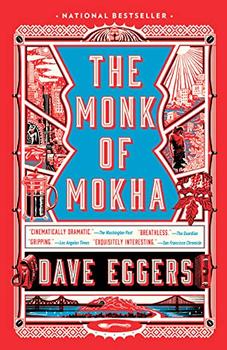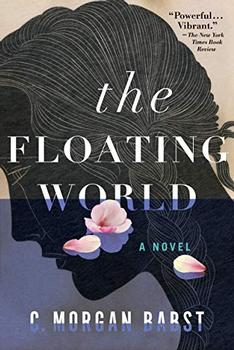Summary | Excerpt | Reading Guide | Reviews | Beyond the book | Read-Alikes | Genres & Themes | Author Bio

The true story of one family, caught between America’s two biggest policy disasters: the war on terror and the response to Hurricane Katrina.
Abdulrahman and Kathy Zeitoun run a house-painting business in New Orleans. In August of 2005, as Hurricane Katrina approaches, Kathy evacuates with their four young children, leaving Zeitoun to watch over the business. In the days following the storm he travels the city by canoe, feeding abandoned animals and helping elderly neighbors. Then, on September 6th, police officers armed with M-16s arrest Zeitoun in his home. Told with eloquence and compassion, Zeitoun is a riveting account of one family’s unthinkable struggle with forces beyond wind and water.
A New York Times Notable Book
An O, The Oprah Magazine Terrific Read of the Year
A Huffington Post Best Book of the Year
A New Yorker Favorite Book of the Year
A Chicago Tribune Favorite Nonfiction Book of the Year
A Kansas City Star Best Book of the Year
A San Francisco Chronicle Best Book of the Year
An Entertainment Weekly Best Book of the Decade
Zeitoun is certainly a notable book and deserving of all the praise it's received, but it's not flawless. I found much of it plodding and poorly written - disappointing in light of Eggers' considerable literary talent. More than that, though, was the feeling that I was being overtly manipulated into having certain opinions or feelings toward the main character and his situation. All writers do this to some extent, but in Eggers' case it's blatant and heavy-handed. The first half of the book, for example, relates the lives and histories of Zeitoun and his Louisiana-born wife, Kathy. So much of the narrative focuses on the fact that the couple are Muslim, however, that it biases readers for what is to come. By the time we reach Zeitoun's arrest, we're predisposed to think his treatment is due to his Middle Eastern background, and some of the early summaries of the book go further to imply that this is the case. It eventually becomes apparent that Zeitoun's race and religion are immaterial to his situation, but by then the implication of racism is hard to shake...continued
Full Review
 (806 words)
(806 words)
(Reviewed by Kim Kovacs).
The term "hurricane" is believed to originate with the Carib people of the West Indies (after whom the Caribbean was named). Historians believe that the Carib word huracan was probably derived from the Mayan storm god, Hunraken or the K'iche god of thunder and lightning, Hurakan. K'iche (in Spanish Quiché) is a part of the Mayan language family spoken by many people in the central highlands of Guatemala.
Hurricanes form when moisture from warm ocean water (at least 80oF/27oC) combines with warm air at the ocean surface. The developing storm is then hit by a strong surface wind that spirals the air inward. Bands of thunderstorms form over this storm which allows the air to warm further and rise higher into the atmosphere.&...

If you liked Zeitoun, try these:

by Dave Eggers
Published 2019
From the best-selling author of The Circle and What Is the What, a heart-pounding true story that weaves together the history of coffee, the struggles of everyday Yemenis living through civil war and the courageous journey of a young man - a Muslim and a U.S. citizen - following the most American of dreams.

by C. Morgan Babst
Published 2018
A dazzling debut about family, home, and grief.
The secret of freedom lies in educating people, whereas the secret of tyranny is in keeping them ignorant
Click Here to find out who said this, as well as discovering other famous literary quotes!